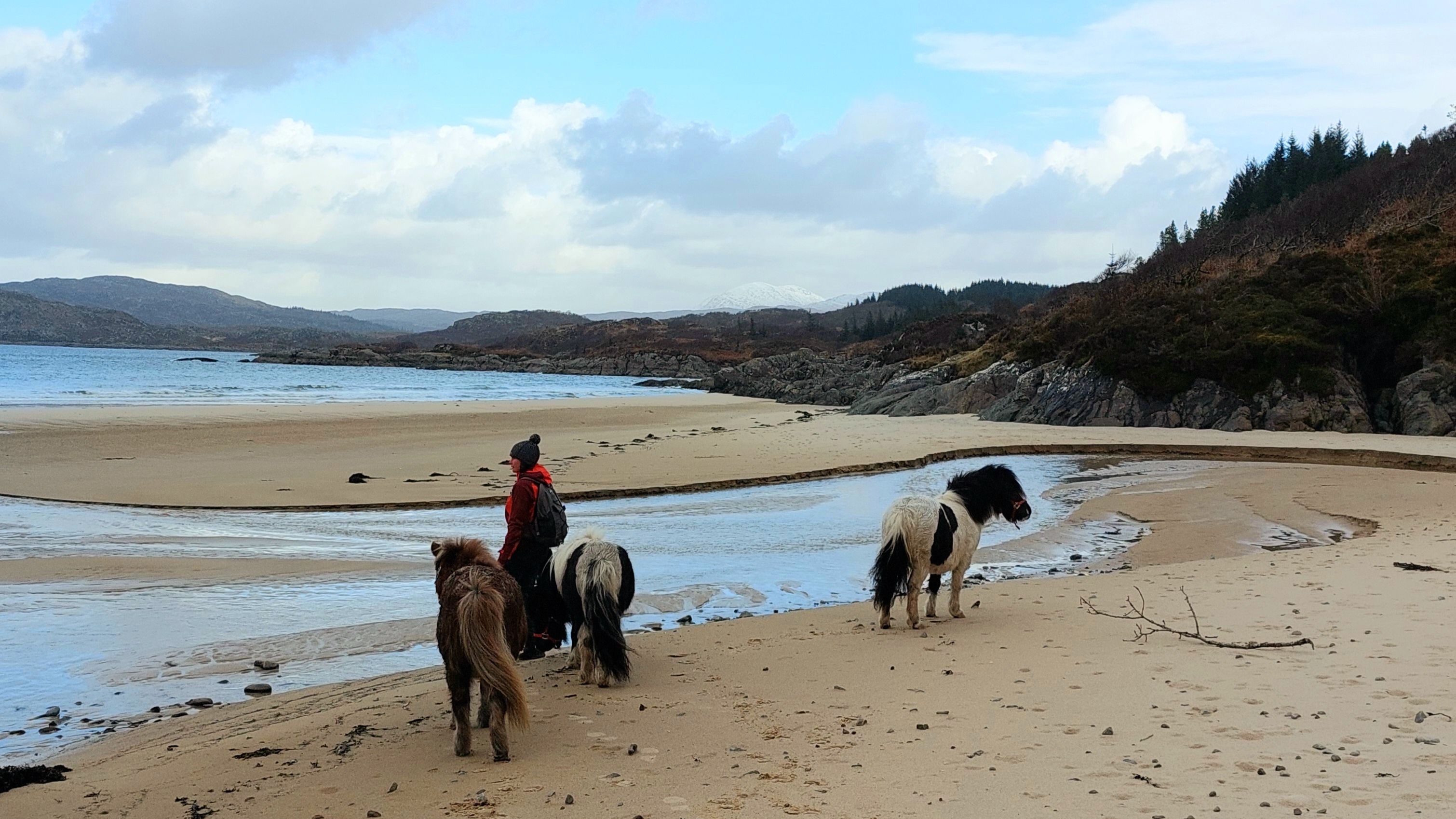Enhancing Equine Welfare: Embracing Choice, Control, and Challenge
Mar 12, 2025
The topic of equine welfare has become increasingly important in recent years, and as horse lovers and caretakers, we must ensure our horses are thriving in every way. Let’s dive into three key aspects that can help us boost our horses’ welfare and happiness
Physical Health
First off, we often think about a horse's physical health. A horse that is free from disease and injuries and can perform its usual tasks is typically seen as having good welfare. But here’s the thing: a horse can look fit and strong yet still be feeling stressed or anxious (Duncan, 2008). It’s so important to look beyond just the physical!
Natural Behaviours
Another vital piece of the puzzle is whether our horses are allowed to express their natural behaviours—the kind they would show in the wild (Kiley-Worthington, 1989). However, simply focusing on natural behaviours can be misleading. Some natural actions can actually be stressful, like when a prey animal is chased by a predator. Meanwhile, some unnatural behaviours can make our horses happy and healthy, like playing with puzzle boxes (Washburn, 2015).
Let’s Talk About Psychological Wellbeing
A third and very important concept to consider is psychological wellbeing—how our horses feel on the inside. By putting their mental and emotional health first, we find that their physical health and ability to express natural behaviours improve too.
Here at Horse Play, we focus on the idea that a horse’s mental state is key to its overall welfare. Giving our horses opportunities to make choices is a fantastic way to boost their happiness and wellbeing. This idea ties into the 5 Domains Model, which is a leading framework we can use to assess the welfare of animals.
The Perks of Choice, Control, and Challenge
When we give our horses the freedom to make choices, it makes a difference in how they feel. It offers them a sense of control, which is vital for their overall health and happiness. Plus, letting horses decide what they prefer lightens the load on us as caregivers, as we can let them lead the way!
So, what do we mean by choice, control, and challenge?
Choice: This means giving our horses more than two options! For example, we can let them pick different types of forage from different locations or decide how they want to move—whether it’s a gentle stroll or a playful gallop. Choices help them feel more in control of their environment.
Control: They can predictably produce a desired result. An example of this might be coming to their mat to have their feet done for a food reward rather than eating with their friends.
Challenge: Challenges involve encouraging our horses to use their skills to overcome certain tasks, which helps them gain confidence. It’s amazing to see how much more adept our horses can become at solving problems when we provide them with appropriate challenges.
Agency in Action
Let me share a story from one of our adventures with the herd. When we first visited the sea, Pixie, one of our ponies, was quite nervous. She slowly approached the gentle waves, but was obviously anxious and chose to return to the herd. After a little exploration in her own time, she became comfortable exploring the feel, smell and taste of the sea in all its forms. Fast forward a few months; I was out on an adventure with the herd and had misread the tide. At the point we usually walk around the headland, the water had come in, covering the path to knee and then waist height. As I looked around for an alternative route, I turned around to see Pixie confidently swimming around a headland all by herself! Oscar followed her, and adventurous (but not really a swimmer) Bonny found a daring route over rocks to the next beach, showing just how much their confidence had grown.
Their choices to take control and challenge themselves to achieve the desired goal showed this increased sense of competence. Indeed, the whole herd demonstrated that they had become braver, smarter and more physically capable as a direct result of having agency in their lives.
Wrapping Up
Autonomy (the ability to control one's actions) and competence (the ability to tackle challenges) are crucial for our horses' psychological well-being. Just like us, horses thrive when they can confidently navigate their environment. Encouraging agency in our horses enriches their lives and fosters a deeper bond between us. Let’s ensure our equine friends lead happy, fulfilling lives filled with choice, control, and opportunities for self-led fun!
References
Kiley-Worthington, M. Ecological, ethological, and ethically sound environments for animals: toward symbiosis. J Agric Ethics. (1989) 2:323–47. doi: 10.1007/BF01826810
Duncan, IJ. A concept of welfare based on feelings In: GJ Benson and BE Rollin, editors. The well-being of farm animals: Challenges and solutions. Blackwell Publishing Ltd, Oxford, UK: John Wiley & Sons (2008). 85–101. Google Scholar.
McGreevy, P.; Berger, J.; De Brauwere, N.; Doherty, O.; Harrison, A.; Fiedler, J.; Jones, C.; McDonnell, S.; McLean, A.; Nakonechny, L.; et al. Using the Five Domains Model to Assess the Adverse Impacts of Husbandry, Veterinary, and Equitation Interventions on Horse Welfare. Animals 2018, 8, 41. https://doi.org/10.3390/ani8030041
Englund MD and Cronin KA (2023) Choice, control, and animal welfare: definitions and essential inquiries to advance animal welfare science. Front. Vet. Sci. 10:1250251. doi: 10.3389/fvets.2023.1250251
Find out more about the Horse Play At Home Learning Hub and check if it's right for you.
